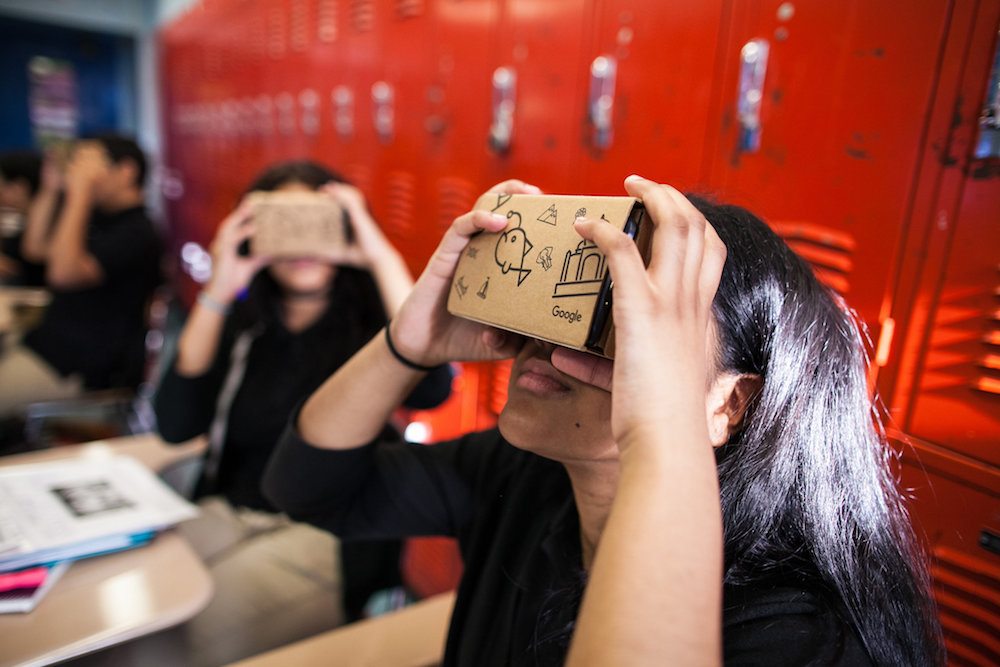
Here is a sordid story of sadness and woe: Once upon a time, my lovely wife was backing out of a parking space at a big box store. Perhaps due to big boxes, she didn’t see a car behind her and backed directly into the car’s passenger-side door. She stepped out to fess up and apologize, and was met by a frothing tirade as the other driver demanded that she immediately pay $1,000 in cash for damages. Things went downhill from there. Of course, Kristi didn’t pay. She cowered and cajoled and somehow managed to trade insurance information and drive home… at which point I distinctly remember that she nearly killed me for feeding the kids a frozen pizza that she was saving for later in the week and for not yet having bathed the offspring. All I saw was that my lovely wife had gone temporarily bat-guano crazy. But the seeds of unfairness had been sown in a big box parking lot. I was the unwitting recipient of trickle-down unfairness.
Science actually has a name for this. It’s called “Generalized Negative Reciprocity.” Basically, it means that when someone is unfair to you, you are likely to be unfair to other people in return, even if the person you treat unfairly had nothing to do with how you were treated.
Economists can see this in an experiment called the Dictator Game. In the game, one person is the “dictator” and can choose how to split a sum of money between him- or herself and another player. The second player is forced to accept the split. That’s it. Not very complicated. Only, the results get a little nuanced. See, most dictators offer at least a little bit of cash to the other player, even though giving away cash offers the dictator no economic benefit. This drives economists bat-guano crazy, as it implies there is more to the human experience than “maximizing utility.” However, while five-year-olds tend to split the pot evenly, even when they could keep it all for themselves, most adult dictators, while not absolutely stingy, are a little less altruistic. A recent study in the journal Scientific Reports showed that when splitting 25 euros, 83 percent of dictators kept most of the money for themselves. Then, like my lovely wife passing along the unfairness she had experienced, people who were on the short end of the dictator’s stick were more likely to offer unfair distributions when it was their turn to dictate.
Unfairness trickles down. The question of the Scientific Reports paper was how to stop the flow. Specifically, they wanted to find a strategy that resulted in people who had been treated unfairly NOT treating people unfairly in the next round. In the Dictator Game, this would be a higher number of players who got stiffed in the first round that went on to offer a more even distribution in the second round.
The German researchers evaluated four strategies: writing an undelivered message to the dictator who wronged them, writing a delivered message to the unfair dictator, writing a description of a neutral picture, or chilling for three minutes. The implication is kind of big: When someone treats you unfairly, should you do something proactive about it or should you breathe deeply and try to move on?
In a first study, they showed that, indeed, getting stiffed by the dictator made people pissed off (pardon the technical scientific jargon). They also showed the intervention that made stiffed people less pissed: When participants wrote notes to the unfair dictator, they ended up happier than people who had been equally stiffed but had written descriptions of a picture or simply sat around for three minutes (it was even a little more powerful when the notes were delivered). Interestingly, it also mattered what they wrote. People who expressed their emotions earned the biggest bump in happiness. People who questioned the dictator’s motive, offered understanding, or disparaged the dictator’s mother missed the happiness train as it left the station.
A second experiment took the obvious next step, testing how these people who had been stiffed acted when it was their turn to be dictator. Lo and behold, people who wrote messages explaining their emotions were not only happier, but also chose to give their second-round partner half-again as much money as people who had tried other interventions. Granted, even these happiness-enhanced participants didn’t immediately sing kumbaya and equally share the experiment’s 25 euros — the median amount these dictator’s gave away was still a paltry 4.5 euros — but it was a heckuva lot more than people who had tried the other three anti-unfairness strategies, who gave a median 3 euros.
To the researchers, this more altruistic split after writing messages that expressed emotions showed evidence of a “decrease in generalized negative reciprocity.” I’m still not sure precisely how suggesting that my lovely wife write a note to the lady in the parking lot might have affected my chance of being killed over pizza and lack of offspring-bathing. But for you, this means that writing a note to a person that done you wrong could help you avoid passing on this unfairness to people in your life.





In your situation with your wife I’d have said,”Look I understand you have had a bad day but that doesn’t give you the right to take it out on me.” and maybe have added,”I am not your scapegoat.”.
Usually does the trick. There is more than one way to confront unfairness.
There is definitely more than one way to confront unfairness! I’m afraid that if I had adopted your approach in this particular situation, I would not be around to write this comment. In my marriage, the “right” thing to do is to offer wine and Netflix and then circle back to the discussion of unfairness once the other concerned party has put her prefrontal cortex back into the pilot’s seat. I’m not suggesting that I choose to live with unfairness, only that by temporarily capitulating, I have a better chance of righting wrongs in the long game.